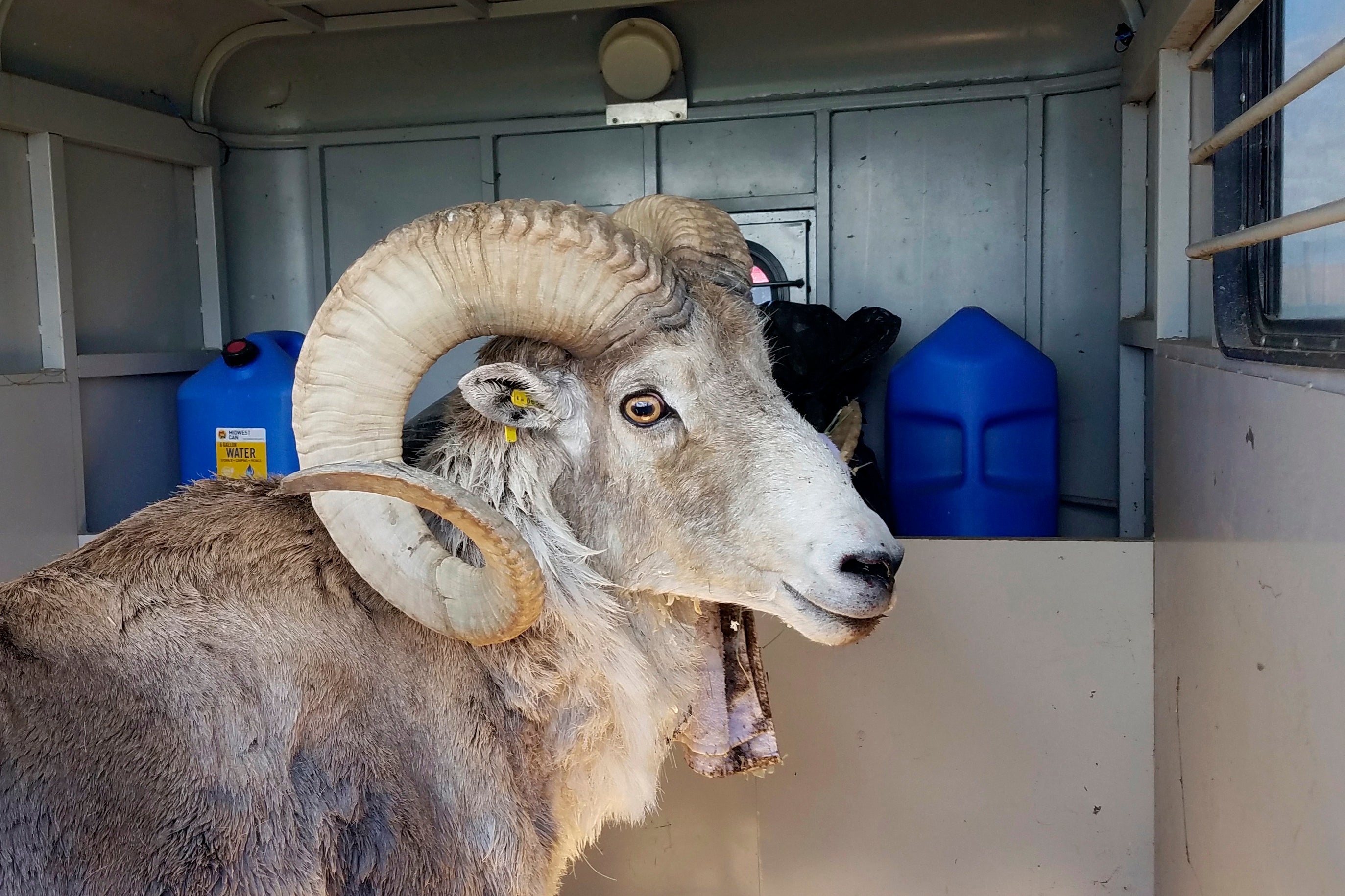Farmer bred ‘mutant’ sheep to sell for hunting by using testicles from wild animals
Arthur ‘Jack’ Schubarth, 80, has pleaded guilty to breeding “Montana Mountain King” sheep

Your support helps us to tell the story
From reproductive rights to climate change to Big Tech, The Independent is on the ground when the story is developing. Whether it's investigating the financials of Elon Musk's pro-Trump PAC or producing our latest documentary, 'The A Word', which shines a light on the American women fighting for reproductive rights, we know how important it is to parse out the facts from the messaging.
At such a critical moment in US history, we need reporters on the ground. Your donation allows us to keep sending journalists to speak to both sides of the story.
The Independent is trusted by Americans across the entire political spectrum. And unlike many other quality news outlets, we choose not to lock Americans out of our reporting and analysis with paywalls. We believe quality journalism should be available to everyone, paid for by those who can afford it.
Your support makes all the difference.A farmer has admitted to using tissue and testicles from wild animals to breed “giant” hybrid sheep to sell to private hunting reserves.
Arthur ‘Jack’ Schubarth, 80, of Vaughn, Montana, pleaded guilty to charges of wildlife trafficking and conspiracy to traffic wildlife during a court appearance in Great Falls on Tuesday.
The 80-year-old could see up to five years in prison for each charge and a fine of up to $250,000 (£196,000).
Court documents describe a conspiracy dating back to 2013, in which Schubarth and at least five other people sought to create “giant sheep hybrids” by cross-breeding different species. Their goal was to sell the mutants to private hunting grounds for up to $10,000 (£7,800) each.
Schubarth illegally used biological tissue and testicles obtained from a hunter in Kyrgyzstan belonging to a Marco Polo argali sheep — the world’s largest species of the animals — and procured cloned embryos from a lab.

The embryos were later implanted in a ewe, resulting in a pure Marco Polo argali sheep that Schubert named “Montana Mountain King,” the court documents show.
Semen from Montana Mountain King was then used to artificially impregnate other ewes to create a larger and more valuable species of sheep, including one offspring that he reached an agreement to sell to two people in Texas for $10,000.
Male argali sheep can top 300 pounds with horns up to 5 feet long, according to officials, making them prized among some hunters. They are protected under international law as a threatened species, and are banned from being imported into Montana to protect native sheep from disease and hybridisation.
The court further heard that 74 ewes of a prohibited sheep species were shipped from Minnesota to Schubarth’s ranch to be artificially inseminated with Montana Mountain King semen. Offspring that had only a portion of the central Asian sheep’s genetics sold for lesser amounts.
Authorities agreed under the terms of a plea deal not to pursue further charges against the defendant, pending his cooperation in the government’s ongoing investigation into the wildlife trafficking case.
Montana Mountain King is in the custody of the US Fish and Wildlife Service, according to Department of Justice spokesperson Matthew Nies. As part of the plea deal, Schubert agreed to quarantine any other sheep containing Marco Polo argali genetics and any bighorn sheep that were harvested from the wild.
The deal also allows wildlife officials to inspect and, if needed, toneuter the animals.
Captive animal facilities where game species can be raised and hunted were banned in Montana in 2000, but they remain legal in some other states. Schubarth’s 215-acre ranch is state-licensed as an alternative livestock facility, although hunting is prohibited.
Schubarth is set to be sentenced by district judge Brian Morris on July 11.
Join our commenting forum
Join thought-provoking conversations, follow other Independent readers and see their replies
Comments